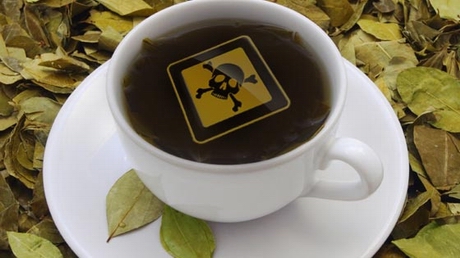
A damning new report on Celestial Seasonings' line of 'all natural' teas reveals that 91 percent of the teas sampled contained pesticide levels that exceeded U.S. federal limits. Ten out of 11 tea varieties, including Antioxidant Blood Orange and Sleepytime Kids Goodnight Grape were found to have excess pesticides.
Don't let that term "all natural" fool you
Celestial Seasonings, owned by parent company Hain Celestial, is one of the largest specialty tea manufacturers in North America. Its website and advertising materials proclaim that Celestial Seasonings was "founded on the belief that all-natural herbal teas could help people live healthier lives. Celestial Seasonings has also heavily advertised that their teas are "all natural".
However, it is worth noting that there is no accepted definition for the term "all natural" and that the term has been much abused by food companies to market products that are less than safe or nutritious.
What the tests found
The tests conducted by Eurofins Scientific, an independent analytic testing company, determined that many varieties of Celestial Seasonings teas contained potentially dangerous levels of multiple pesticides.
A Celestial Seasonings spokesperson gave a mostly cut-and-paste response from the "values" page of their website about how they employ a "rigorous testing protocol" and that they are "confident that all Celestial Seasonings teas deliver on the high quality, safety, and taste that consumers have expected from the brand for over 40 years."
The tests were part of a larger report by investment company Glaucus Research, which is highly critical of Hain Celestial. Though Glaucus Research is an investment firm that specializes in short selling and one which stands to gain financially if Hain Celestial stocks go down, their report appears to be extremely well researched.
In their report, released February 21, 2013, Glaucus noted, "It is important to note that at no time did we take custody of, touch or handle any of the tea samples. Rather, we had the products shipped directly to Eurofins from the company's website and other online retailers."
Glaucus also said that it encourages others to repeat their tests and further stated that "The only way for consumers to make good food choices is if food producers are held accountable for the marketing and labeling of their products."
The teas tested
Following is a list of the teas tested by Eurofins:
Green Tea Peach Blossom
Green Tea Raspberry Gardens
Authentic Green Tea
Antioxidant Max Dragon Fruit
Green Tea Honey Lemon Ginger
Antioxidant Max Blackberry Pomegranate
Antioxidant Max Blood Orange
Sleepytime Kids Goodnight Grape
Sleepytime Herb Teas
English Breakfast Black K-Cup
Rooibos Safari Spice
Of all the teas tested, only Rooibos Safari Spice had zero pesticides, and the rest exceeded federal safety and/or California safety limits:
Who can you trust for good sustainable tea?
Consumers are sure to wonder: If you can't trust Celestial Seasonings, which teas can you trust? The answer appears to be Twinings, for one. A rankabrand.org report gives an A to Twinings teas, their highest rating for sustainability. Celestial Seasonings got an E, the lowest sustainability ranking.







